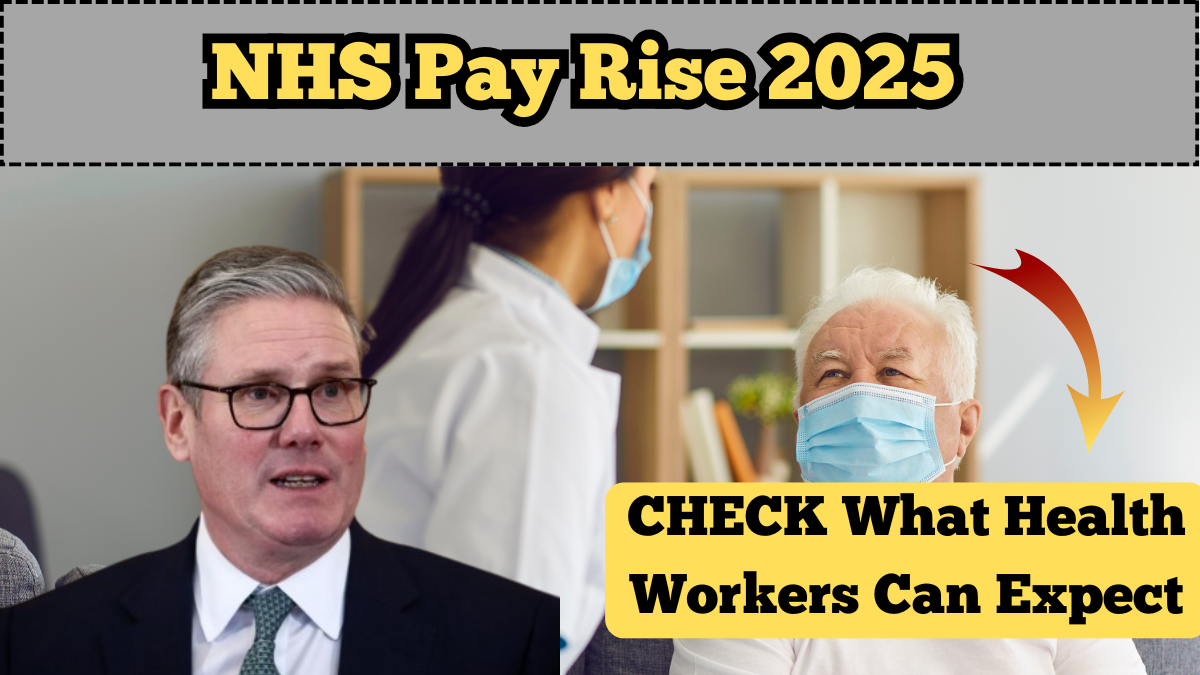The NHS pay rise 2025 has become a critical subject for thousands of UK healthcare workers. After years of pay disputes, inflation concerns, and cost of living pressures, staff across the National Health Service have been anxiously awaiting confirmation of their 2025 pay adjustments. The government has now announced new salary updates for various healthcare roles, with increases set to impact nurses, junior doctors, paramedics, and allied health professionals.
This year’s health worker salary increase follows prolonged union negotiations and is designed to improve retention and morale across the NHS.
This article explains what’s included in the UK NHS pay rise 2025, who benefits, and what to expect going forward.
Overview of the NHS Pay Rise 2025
The NHS pay rise 2025 is part of the UK government’s wider investment in public services and workforce retention. As outlined by the Department of Health and Social Care, the government has accepted the recommendations from the independent pay review bodies for NHS staff under the Agenda for Change and medical contracts.
Here’s what has been confirmed:
-
Nurses and other Agenda for Change staff: 5% average pay rise
-
Junior doctors: Up to 9% rise, including backdated pay
-
Consultants and senior doctors: 6% increase, plus reforms in pension cap and bonuses
-
Paramedics, midwives, and support staff: Varying increases aligned with banding
These increases will begin rolling out in summer 2025, with most employees seeing updates in their July or August pay packets.
Why the NHS Pay Rise Was Necessary in 2025
The NHS has faced unprecedented staffing challenges in recent years. With thousands of unfilled vacancies and mounting workloads, many NHS workers have cited burnout and poor compensation as major issues. The health worker salary increase in 2025 is seen as an essential step to:
-
Retain experienced staff
-
Attract new talent, especially into frontline roles
-
Restore morale after months of industrial action
-
Ensure patient care is not compromised by staff shortages
This year’s NHS pay rise 2025 is designed not just to compensate workers fairly, but to stabilise the system amid recruitment struggles.
Who Will Benefit from the 2025 NHS Pay Rise?
The UK NHS pay rise 2025 applies to nearly all public health sector workers in England, Wales, Scotland, and Northern Ireland, though local adjustments may vary slightly.
The main beneficiaries include:
-
Nurses and midwives under the Agenda for Change framework
-
Junior doctors, who will also receive backdated payments
-
Consultants and specialty doctors, with improved pay scales and pension reforms
-
Ambulance staff, including paramedics and dispatchers
-
Administrative, clerical, and support workers, depending on banding
The health worker salary increase will be automatic for those employed by NHS trusts, with backdated payments processed over the next two payroll cycles.
How Much Will NHS Staff Earn in 2025?
Exact figures vary depending on job role and band. Here are examples of new projected salary ranges following the NHS pay rise 2025:
| Role | 2024 Salary (Approx.) | 2025 New Salary |
|---|---|---|
| Band 5 Nurse | £28,407 | £29,827 (+5%) |
| Junior Doctor (FY2) | £34,000 | £37,060 (+9%) |
| Consultant | £93,666 | £99,286 (+6%) |
| Paramedic (Band 6) | £35,392 | £37,161 (+5%) |
| Support Staff (Band 2) | £22,383 | £23,502 (+5%) |
These increases are part of the government’s commitment to fund the uplift through the NHS England budget without cutting essential services.
Union Reactions and Industrial Action Status
The health worker salary increase has received mixed reactions from unions:
-
Royal College of Nursing (RCN): Welcomed the 5% rise but warned it may still fall short of inflation
-
British Medical Association (BMA): Accepted junior doctor pay deal after member vote
-
UNISON: Called the pay rise a positive step but urged ongoing investment
Most major unions have paused industrial actions for now, although they are keeping negotiations open should cost of living conditions worsen.
Impact on NHS Recruitment and Retention
With the NHS pay rise 2025, the government hopes to:
-
Reduce vacancy rates in critical care and emergency services
-
Improve retention rates among experienced nurses and doctors
-
Enhance the appeal of NHS careers to graduates and international recruits
Healthcare leaders believe that better pay, alongside better working conditions, is essential to avoid future disruptions.
What Comes Next for NHS Pay?
Looking ahead, the government is expected to introduce reforms to how NHS pay reviews are conducted, including:
-
Annual reviews tied more closely to inflation and workforce data
-
Stronger role for unions in negotiating starting salaries
-
Incentives for rural and hard-to-fill positions
These policy adjustments could ensure the NHS pay rise 2025 isn’t a one-off event but the beginning of long-term wage stability.
FAQs
How much is the NHS pay rise in 2025?
The average NHS pay rise is 5% for Agenda for Change staff and up to 9% for junior doctors, with consultants seeing about 6%.
Who qualifies for the NHS pay rise?
Most NHS workers under Agenda for Change or medical contracts are eligible, including nurses, doctors, paramedics, and support staff.
When will NHS workers receive the new pay?
Payments will start from July 2025 and include backdated adjustments in some cases.
Will the pay rise be taxed?
Yes, the pay rise is subject to normal income tax and National Insurance contributions.
Is the NHS pay rise enough to cover inflation?
While the rise helps offset rising costs, some unions argue it still lags behind inflation, especially in high-cost urban areas.
Click here to know more.

